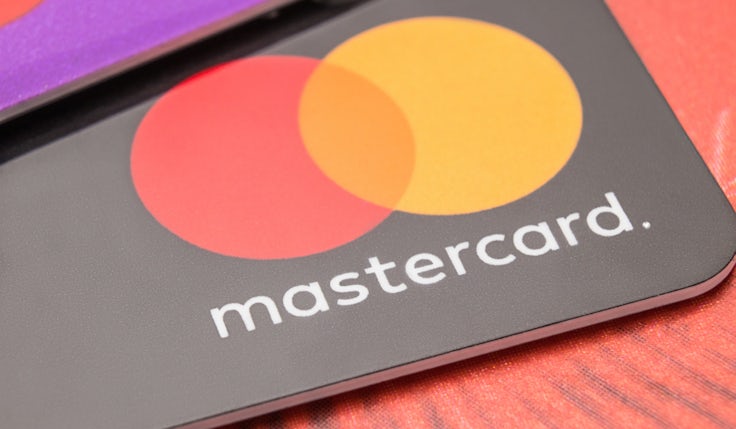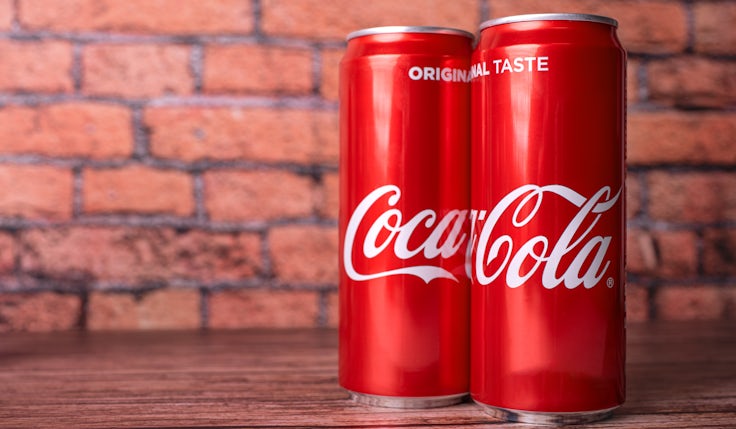Mastercard’s Rajamannar on navigating the ‘confusion’ around brand purpose
CMO Raja Rajamannar argues there is a difference between ‘brand purpose’ and ’cause marketing’, as he outlines the “roadmaps” Mastercard has built towards its own north star.
 Mastercard’s chief marketing and communications officer, Raja Rajamannar, believes it is “critical” that businesses are purpose driven, and profits will follow when brands pursue this “passionately”.
Mastercard’s chief marketing and communications officer, Raja Rajamannar, believes it is “critical” that businesses are purpose driven, and profits will follow when brands pursue this “passionately”.
However, he also believes there is a lot of “confusion” among marketers between brand purpose and cause marketing.
Speaking at the World Federation of Advertisers (WFA)’s Global Marketer Week today (7 April), Rajamannar explained: “They are not the same. Purpose is your north star, while cause marketing – the causes you decide to support – are your roadmaps.
“The roadmaps which will lead you towards your purpose is what purpose marketing is.”
Since 2014, Mastercard’s brand purpose has centred around delivering “priceless moments”. However, that approach is now evolving into something more “movement” focused, he said.
“We want to really create and curate priceless moments in people’s lives, and so from now we’re actually talking about priceless movements.”
For example, one road Mastercard is taking is in becoming a more inclusive brand through design and advertising. Last month Mastercard launched its first audio description ad, ‘Spotlight’, to introduce consumers to its ‘touch card’ design.
Mastercard claims its touch cards are a “first-of-its-kind” accessible payment card system for blind and partially-sighted people. Debit, credit and prepaid cards are distinguished by touch with three distinctly shaped notches.
Purpose is your north star, while cause marketing – the causes you decide to support – are your roadmaps.
Raja Rajamannar, Mastercard
“When we looked at how we could leverage the sense of touch for our campaigns, we realised there is a huge opportunity. I grew up in India and when I was growing up my grandmother used to live with us, and she was blind,” Rajamannar said.
“We had to literally help her navigate the whole home, which was very tedious for her… So we started wondering how blind people use their cards. How do they know the front of the card from the back of the card? How do they know where the chip is to insert into the slot of the point of sale terminal? How do they know which is a Mastercard versus any of our competitors? How do they know if its a debit card or credit card?”
Spotlight showcases the experience of a blind woman as she makes her way down a street, including the difficulties of distinguishing different sounds. She enters a café and is able to easily identify the card she needs to pay.
Rajamannar said testing this ad among blind audiences was the “most gratifying experience” in his time at Mastercard. “It was fantastic for us,” he said.
Mastercard also partners with Cancer Research UK’s Stand Up to Cancer foundation, applying its management methodologies and techniques into the world of cancer drug research.
“We have already enabled the creation of eight new cancer drugs,” Rajamannar said. “You don’t associate Mastercard with finding drugs for cancer, but that’s exactly what we are trying to do, and [without] advertising it because that will seem totally self serving.”
Mastercard has also launched a Priceless Planet Coalition, partnering with other businesses within its network on a mission to restore 100 million trees by 2025. Mastercard has contributed “boatloads of money” to this so far, Rajamannar claimed.
“But more importantly, we are leveraging the power of our network. We have 80 million merchants and 60,000 banks whose power we can bring to the table… This is a very significant effort.”
Purpose is therefore “not only about your brand”, Rajamannar said. “Brand will eventually be recognised, and profits will follow if you really passionately go through the purpose. You want to follow you north star, identify the right causes, and then actually pursue that.”
He added that in his 36 years in the field of marketing, now is “by far the most exciting and inspiring moment”.
“Many things I used to dream about how marketing could be… They are all becoming reality today,” he said.
Purpose has been a divisive topic in marketing, particularly over the past 12 months. Effectiveness expert Peter Field sparked furore in October with research which showed well-executed brand purpose campaigns can drive above average business effects for brands compared to non-purpose cases.
At the time, Field noted there had been an “awful lot of vitriolic criticism” of purpose in marketing that is not entirely justified.
However, marketing experts including Professor Byron Sharp, Marketing Week columnist Mark Ritson, and Richard Shotton, founder of behavioural science consultancy Astroten, branded the research flawed for comparing “strong” purpose campaigns with both weak and strong non-purpose campaigns combined.
Later in October, Sharp claimed purpose could be “the death of brands”.
The argument was reignited in January this year when fund manager Terry Smith, founder of Fundsmith Equity Fund, branded Unilever’s focus on sustainability and brand purpose as “ludicrous”, and claimed the strategy led to the FMCG giant’s underwhelming performance in 2021.
However, Unilever disputed his claim, noting that its 28 ‘Sustainable Living’ brands grew 69% faster than the rest of the business in 2018, up from 46% in 2017, and delivered 75% of Unilever’s overall growth that year.
At the time, CEO Alan Jope committed to furthering Unilever’s purpose credentials, saying: “We believe the evidence is clear and compelling that brands with purpose grow. In fact, we believe this so strongly that we are prepared to commit that in the future, every Unilever brand will be a brand with purpose.”







